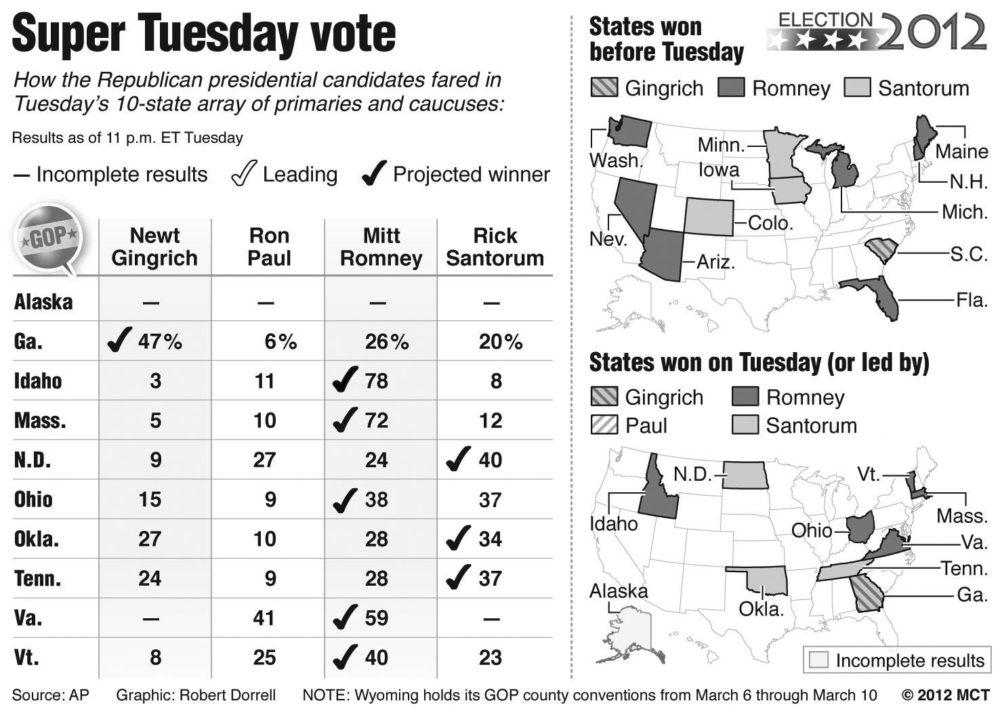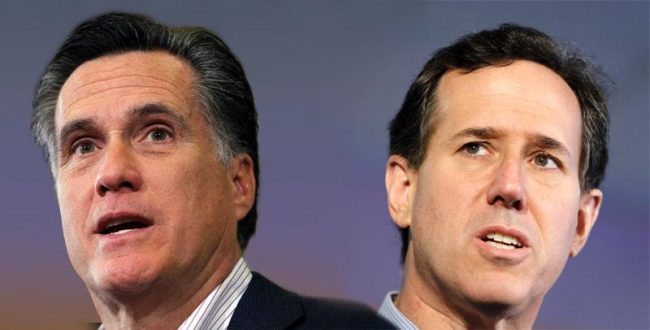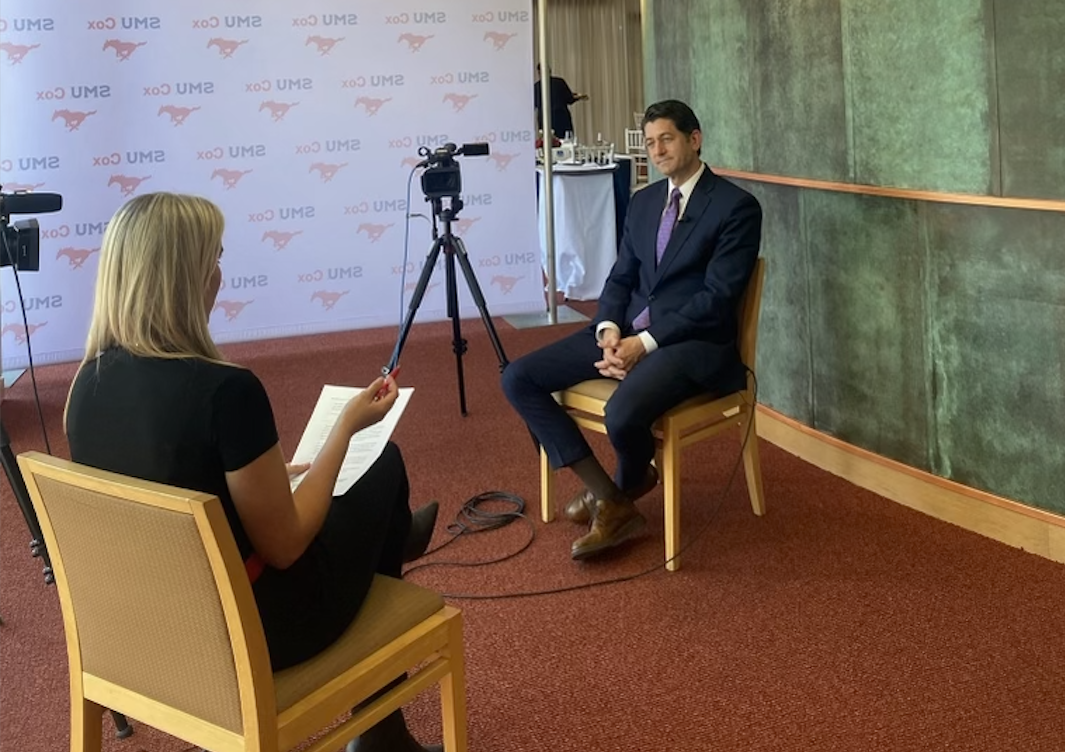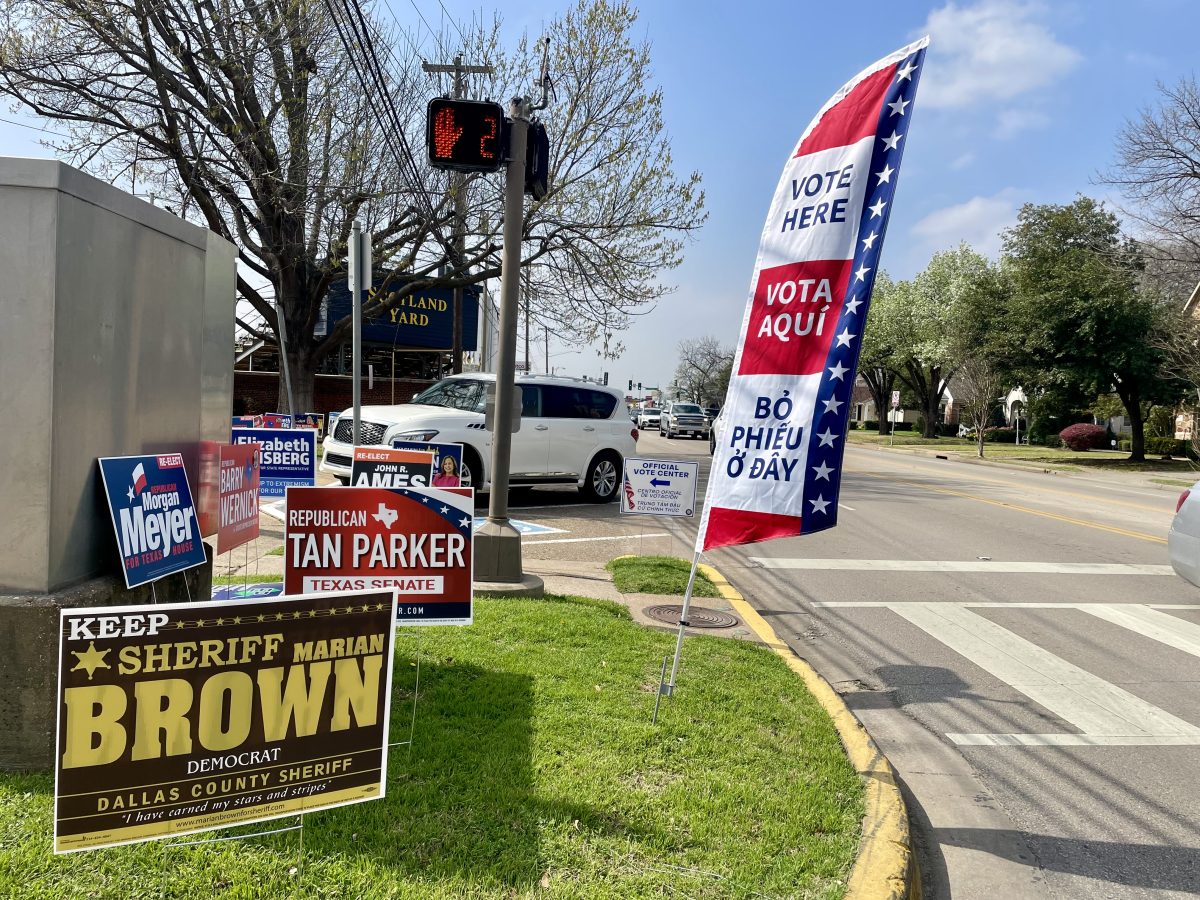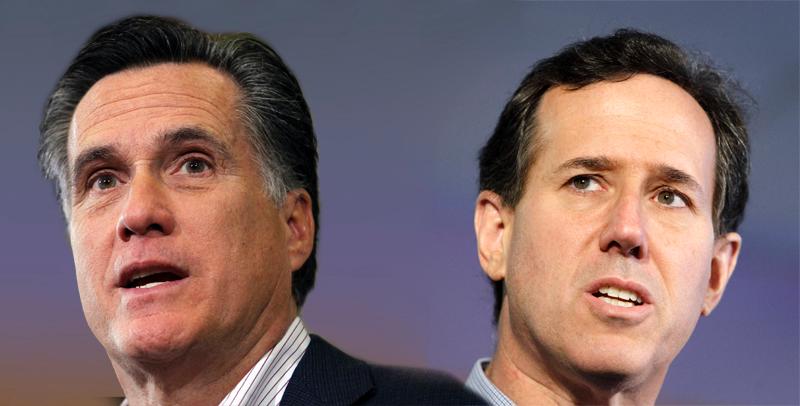
Both Mitt Romney and Rick Santorum came out at the top of the Super Tuesday elections, but no clear frontrunner could be found at the end of the evening. (Photo illustration by Spencer J Eggers/The Daily Campus)
The race for the Republican presidential nomination has been a long and costly process.
Since the start of electioneering in summer 2011, many candidates have entered the presidential process with great promise.
Rick Perry, behind support from social conservatives and super PACs, gained traction in the polls when he entered the race in August.
But, his support slowly died down with poor debate performances including a now infamous speech where the Texas governor forgot the name of a government agency he wanted to reform.
With Perry’s fall, businessman Herman Cain rose in the polls because of a strong stance on foreign policy and a 9-9-9 taxation plan.
Cain stood at the top of the GOP pyramid for a few weeks until accusations of sexual harassment from multiple women weakened his campaign.
After Perry and Cain called it quits, the race for the presidency came down to four candidates: Newt Gingrich, Mitt Romney, Ron Paul and Rick Santorum.
Romney, the candidate most believe will gain the nomination, faced tough competition from Santorum and Gingrich during separate periods of the race.
Santorum’s success in Minnesota and Missouri offered many Republican voters an alternative to the fiscally conservative Romney, who is widely seen as a moderate on social issues.
“There are also folks who many not agree with us on a lot of our tax and spending policies, but they agree with us on the importance of the family and faith as an important part of building this country up,” the former senator from Pennsylvania said to a crowd of supporters in Washington on March 1.
Political analysts hoped that Super Tuesday would decisively declare a frontrunner for the nomination.
Historically, Super Tuesday has served as a final indicator of which candidate would secure enough delegates – 1,144 delegates are needed for a nomination – to gain the favor of the GOP.
However, in 2012, where Super Tuesday brought voters from Vermont to Alaska to the polls, results promised to extend the GOP race as both Romney and Santorum won key states.
Santorum won North Dakota, Tennessee and Oklahoma while Romney triumphed in Idaho, Virginia, Vermont and Massachusetts.
Romney failed to land a knockout blow against his social conservative rival. The implications for the Republican Party are far-reaching.
Santorum, supported by grassroots conservatives and Romney, bolstered by the Old Guard, will both vie for Republican votes in the future months.
“This is a process of gathering enough delegates to become the nominee, and I think we’re on the track to make that happen,” Romney said Tuesday in Belmont, Mass., to a gathering of his flock. Much of the American politic is looking forward to a two-man race between President Obama and a Republican hopeful.
“I think people want to see an end to this process. As a politically engaged citizen, I want to start comparing the platform of the incumbent with what the conservative side has to offer,” Mehdi Hami, a first-year, said.
